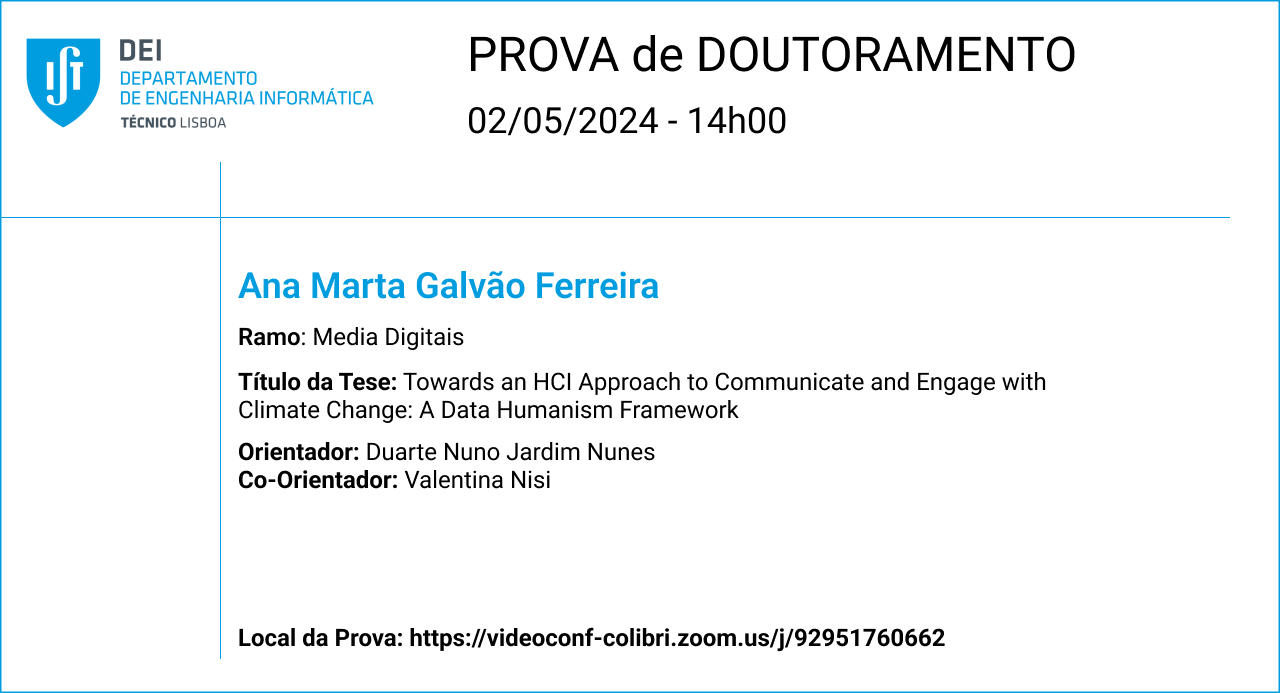Prova de Doutoramento da aluna Ana Marta Galvão Ferreira

Ramo: Media Digitais
Título da Tese: "Towards an HCI Approach to Communicate and Engage with Climate Change: A Data Humanism Framework"
Local da Prova: https://videoconf-colibri.zoom.us/j/92951760662
Data: 02/05/2024
Hora: 14h00
Abstract: Climate change is arguably the most urgent issue of our time. This research investigates the potential of data humanism to enhance engagement with climate change data through human-computer interaction (HCI). Responding to gaps found in previous HCI and Design research, we propose and test a Data Humanism framework through continuous iterations of a data-story artefact. The design of this artefact assisted in answering the defined research questions: RQ1: How have the fields of HCI and Design employed communication strategies, both theoretical and practical, to engage non-academic audiences with climate change subjects?; RQ2: How can data humanism contribute to creating positive and empowering engagements with climate change information?; RQ3: How can data humanism make climate change information more relatable and actionable at a human scale? The continuous iterations in the design were informed by evaluation studies targeting the defined questions. Findings indicate that adding layers of information to contextualise and link the data to user’s knowledge and experiences helps engagement and relatability with climate change data. Also, solutions-oriented visualisations linked to the narrative create or reinforce a feeling of agency in climate matters and, therefore, the usefulness of the data. Furthermore, novel topics and contexts for the communication exchange enhance user interest in climate change topics. However, even though users appreciate the focus on action, the tested interactions with humanized data were insufficient to alter the person’s general perception of the issue considerably. This latter result highlights the challenge of altering the hard-set bias of negative framing associated with climate change and the need for continuous engagement through action-focused and hopeful messages. Finally, AI features can deepen user engagement through empathy with the more-than-human characters. These results have implications not only for future HCI and design research but also for broader climate change engagement and communication.
